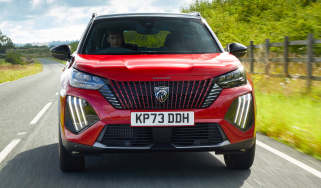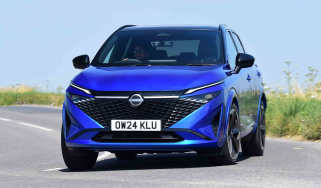What should you do at the end of a PCP car finance deal?
Make sure you choose the right option when your PCP deal ends

Huge numbers of cars are financed via Personal Contract Purchase (PCP) agreements these days, but many PCP customers coming to the end of their contracts and looking for their next new car could be facing a very different car-buying landscape to the one they expected.
When signing a PCP deal three or four years ago, it was reasonable to think you’d easily get a replacement new car when you needed it, and that the optional final payment (also known as the Guaranteed Minimum Future Value or ‘balloon payment’) would be a little less than the car’s actual value at the end of your contract. That difference or ‘equity’ might typically be used as a deposit to put towards a replacement car on a new PCP.
Thanks to the semiconductor shortage, long waiting lists for new cars and soaring values for used ones, that picture has changed for many customers. As a result, anyone approaching the end of a PCP contract today should think hard about their options, especially because your finance provider may be keen to get you into a new contract that ties you into buying a car that may be many months from delivery.
Rikki Belsham, from Southend-on-Sea, Essex, was in just that position when it came to deciding what to do with his Nissan Qashqai 1.5 dCi Tekna.
“We’ve had two Qashqais on PCP, one after the other. When the first one ended I wasn’t in a position to buy the car and I don’t think it’s sensible just to hand the keys back and walk away,” he told us. Instead he used the small amount of equity in the car as a deposit on a new PCP to fund his second Qashqai.
“This time, the final payment was around £11,000 after four years, but I hoped to be able to get as much as £16,000-£17,000 due to the used car shortage, so buying it for £11,000 looked like the best deal. We were offered the chance to extend the PCP while waiting for a new Nissan, but that’s effectively paying more interest on a sum you’ve already financed, plus we wouldn’t get the extra value out of the car’s higher resale value,” Rikki said.
“Circumstances meant I was able to buy the car this time, but I would otherwise have considered taking a bank loan to do it. I’ve already got a new Cupra Formentor on a personal lease, but we’re planning to sell the Qashqai soon and will look at using the cash to buy a used second car.”
Rikki’s experience reflects the situation many PCP users will find themselves in, and manufacturers and dealers offering new models with long waiting lists are keen to provide deals that will ‘bridge the gap’ between cars for PCP customers.
Ford, for example, said it will offer PCP customers in that position a zero per cent PCP deal with repayments similar to what they’ve been paying, allowing them to keep their current car until a new one is ready. VW told us it is offering a 12-month PCP designed to finance customers’ existing cars if they can’t yet take delivery of a new vehicle, and Vauxhall and many others are taking similar steps.
However, while car makers and dealers are keen to keep customers on contract, our advice is to look at all your options to make sure you’re not losing out. This is especially true if terms are not published and you find yourself negotiating a personalised ‘PCP extension’ arrangement with your dealer.
PCP small print also typically requires you to decide what you want to do three months before your contract ends. Fail to do so, and you could be locked into a less than optimal like-for-like ‘trade-in’ scenario.
The pros and cons
Option 1: Return the car and walk away
Pro: You have no more payments to make.
Con: You lose out on any value in the car beyond the outstanding finance balance. This could amount to several thousand pounds.
Con: You end up with no car.
Con: You may have to pay excess mileage or damage charges .
Option 2: Make the optional final payment
Pro: You own the car and can keep it, trade it in or sell it.
Pro: Used car values have increased dramatically over the last two years, so it’s likely that you’ll be financially better off.
Con: The optional final payment is likely to be significant; many drivers won’t have ready funds.
Con: If you have to use finance you’ll be paying interest on the amount still owed.
Con: If used car prices fall, the value of yours may go down, too.
Option 3: Trade in and use equity
That is, put value in the car – beyond the remaining finance/GMFV balance – towards the deposit on your next PCP. This includes special ‘short term’ PCP deals designed to bridge the gap if your desired new car is still months away.
Pro: You can take advantage of the unexpectedly high current value of your car by putting any equity towards the deposit on your next car, which reduces monthly payments on that car.
Pro: You can switch to another car, which may suit your needs better, gauging which models are currently good value compared with your current car.
Con: A new short-term deal means you’re stuck with your old car for longer, and can’t benefit from high current used values.
Con: You may have difficulty sourcing a new car.
Con: As general used car values have increased markedly, equivalent used cars are likely to have gone up in value to a similar degree.
Buy a car with Auto Express. Our nationwide dealer network has some fantastic cars on offer right now with new, used and leasing deals to choose from...
Find a car with the experts









